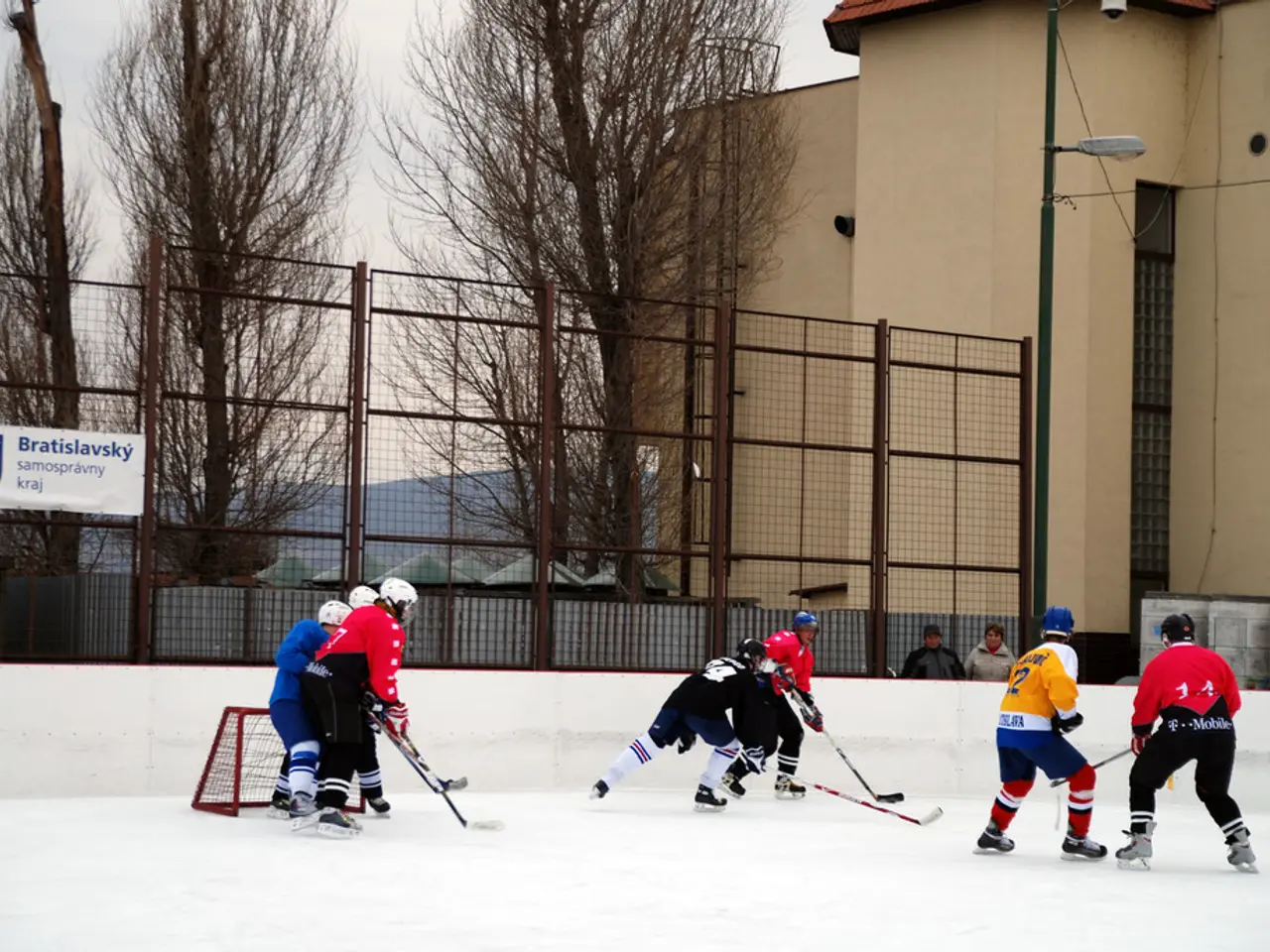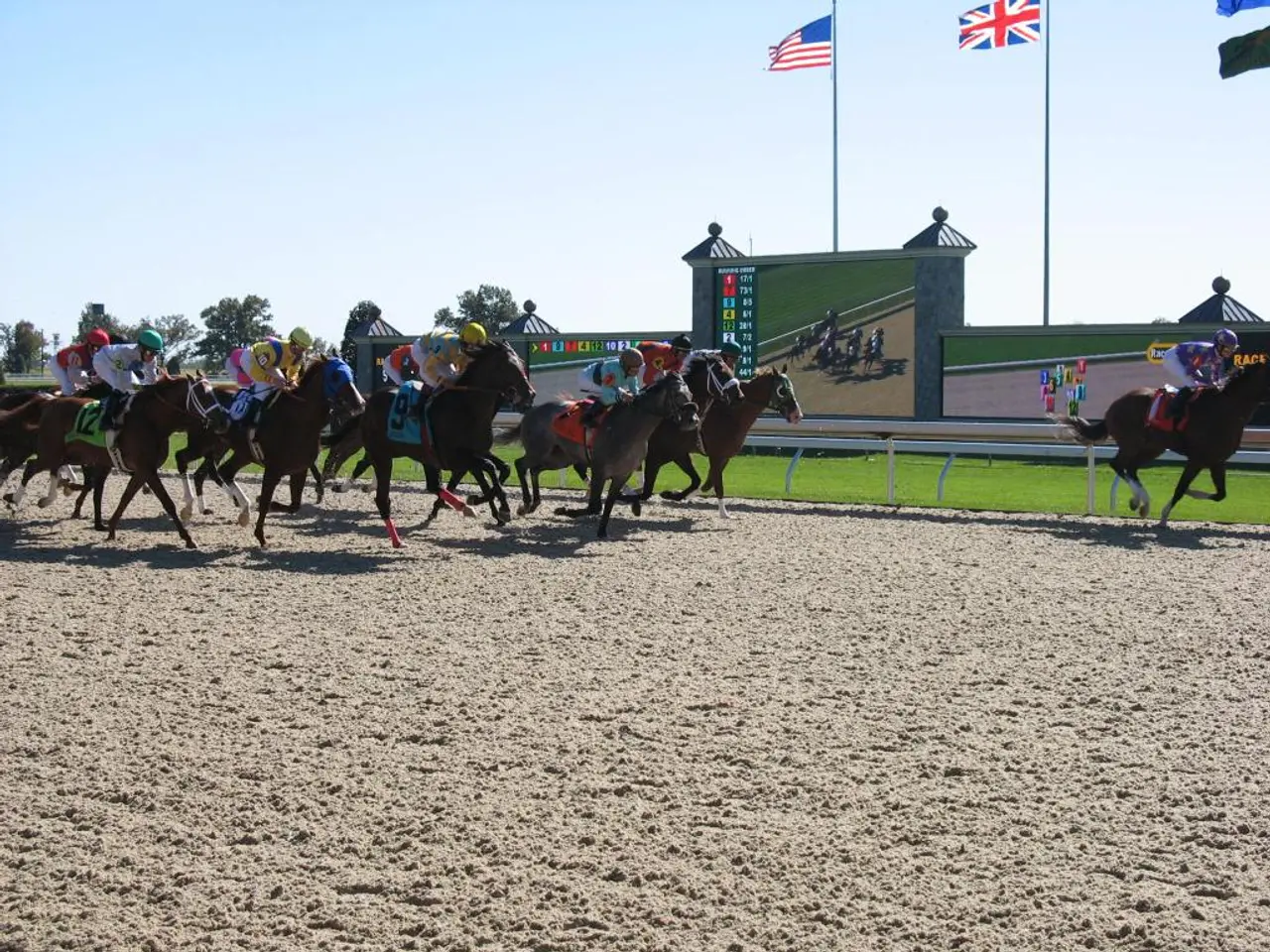Simply desiring to engage in entertainment
In the midst of the ongoing crisis, Ute Groth, the chairwoman of DJK TuSA 06, a sports club based in Flehe, has expressed the importance of sports in coping with the current situation. As the German government prepares to reopen sports facilities, a structured approach is being implemented with a focus on hospitalization rates to ensure safety.
The reopening and operation of sports and leisure facilities in Germany are regulated with a focus on the hospitalization incidence rate per 100,000 residents as a critical benchmark. If this rate exceeds certain thresholds, specific rules are applied. For instance, if the rate surpasses 3 hospitalized per 100,000, facilities must operate under the "2G" rule, limiting access to vaccinated and recovered individuals. If the rate goes beyond 6 hospitalized per 100,000, facilities operate under the stricter "2G+" rule, which adds testing requirements even for vaccinated/recovered persons. If the rate exceeds 9, additional measures like contact restrictions are imposed.
This structured approach means that sports facilities, including those used for club activities, maintain strict access controls and enhanced hygiene concepts during reopening phases. Proof of vaccination, recovery, or testing is often required to ensure safety. Although social distancing is not explicitly detailed in the current regulations, it is typically part of the broader health protocols in German sports venues and club facilities, alongside mask mandates and regular sanitation, especially during higher alert levels.
Larger stadiums and sports venues operating in Germany, such as Bundesliga 2 stadiums, accommodate significant fan attendance, which suggests that controlled reopening is possible with well-monitored safety measures. However, these are subject to change depending on local epidemiological data and government directives.
DJK TuSA 06, under the leadership of Ute Groth, has requested the reopening of sports facilities as a step towards returning to normal life. They believe that the club can make a valuable contribution to social cohesion during the crisis time by reopening sports facilities. Minister President Armin Laschet has stated that sports offers for young people will be an important point in the upcoming meeting between the federal and state governments on April 30.
Ute Groth and DJK TuSA 06 hope for a late April reopening of sports facilities. The state sports association is working with specialist sports departments to develop concepts for resuming training while maintaining safety regulations. Detailed weekly plans regarding age groups, sports, times, and coach assignments could be created for the reopening of sports facilities after receiving feedback from members.
In team sports, DJK TuSA 06 would limit themselves to conditioning, coordination, and skill training. People who value a sense of community might consciously choose sports at a club like DJK TuSA 06. However, the city of Düsseldorf is expanding its "Sport in the Park" offer with free live streams starting next Monday, which might not address the reopening of sports facilities for clubs like DJK TuSA 06.
For more information about the reopening of sports facilities and the "Sport in the Park" offer, visit www.duesseldorf.de/sportamt/sport-im-park.html.
[1] Bundesliga 2 stadiums are examples of larger sports venues that have accommodated significant fan attendance during the pandemic, suggesting that controlled reopening is possible with well-monitored safety measures. [2] This structured approach means that sports facilities, including those used for club activities, maintain strict access controls and enhanced hygiene concepts during reopening phases, often requiring proof of vaccination, recovery, or testing to ensure safety. If the hospitalization incidence rate per 100,000 residents exceeds certain thresholds, specific rules are applied: Above 3 hospitalized per 100,000, facilities must operate under the "2G" rule, limiting access to vaccinated and recovered individuals. Above 6 hospitalized per 100,000, facilities operate under the stricter "2G+" rule, which adds testing requirements even for vaccinated/recovered persons. If the rate exceeds 9, additional measures like contact restrictions are imposed to further limit disease spread.
The reopening of sports facilities in Germany, as demonstrated in Bundesliga 2 stadiums, can be accomplished with controlled measures and strict safety protocols, such as proof of vaccination, recovery, or testing. This structured approach, which also includes enhanced hygiene concepts, will be critical for facilities used in club activities like DJK TuSA 06 during the reopening phases.





